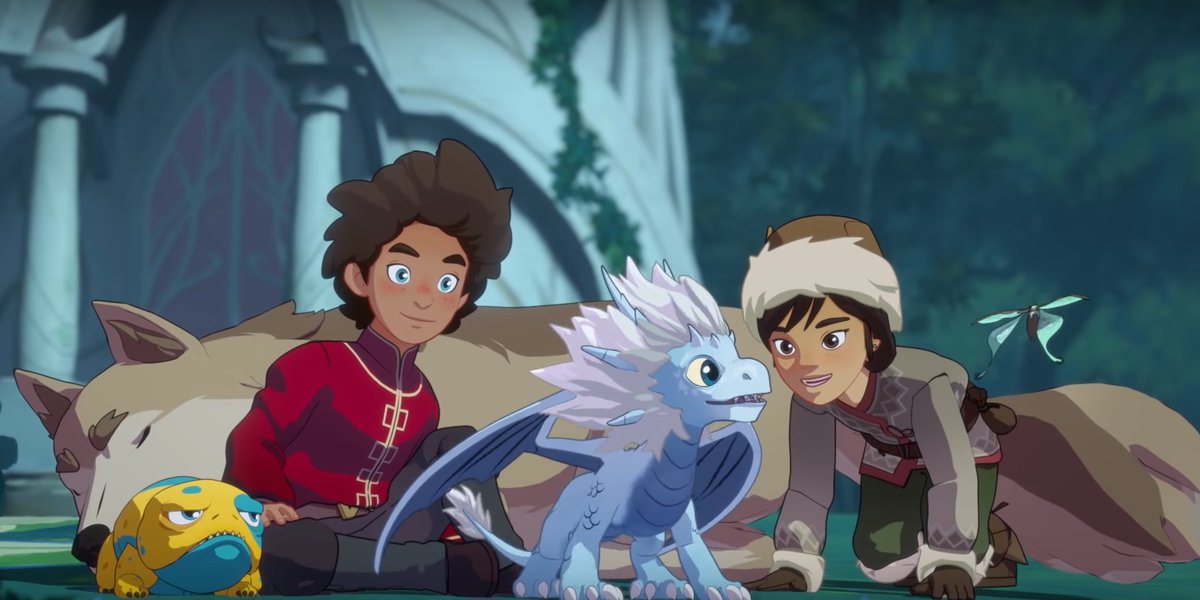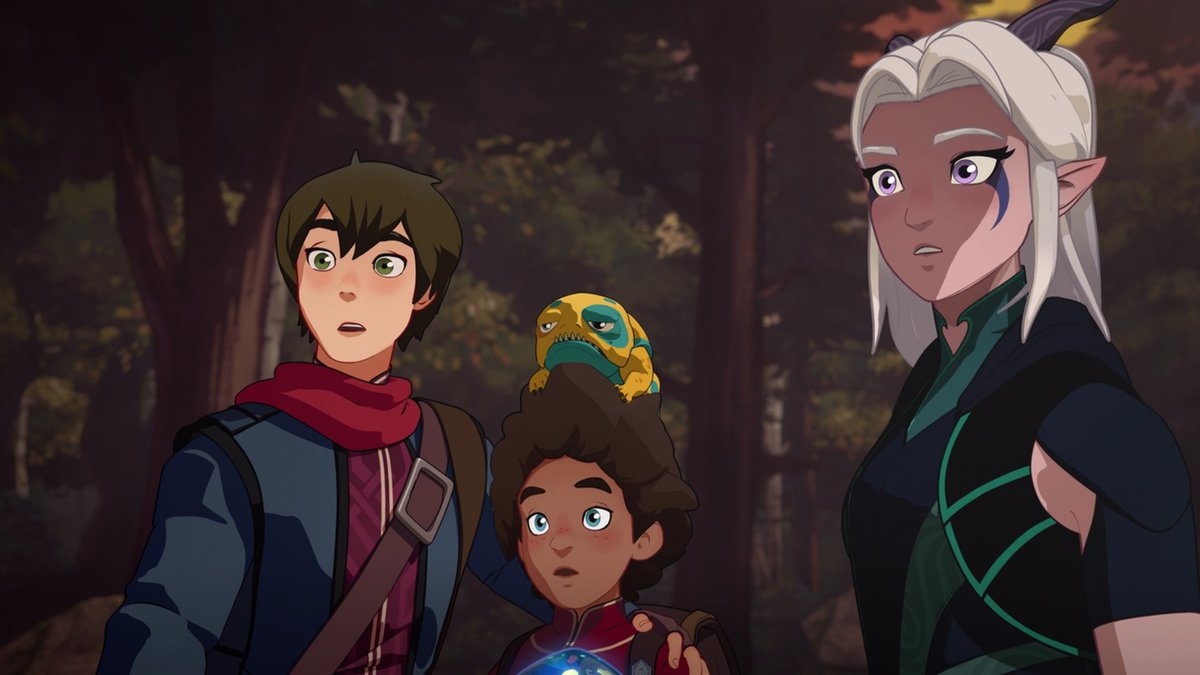The Dragon Prince explores the pain of growing up

The Dragon Prince was, in my humble opinion, the best new Netflix original series to debut last year. With similar art styles and themes, many considered it to be the spiritual successor to Avatar: The Last Airbender, and it went on to garner near universal praise from critics and audiences alike. When book two was released, I watched it immediately.
Surprisingly, the second season had a fairly rough start. It definitely didn’t uphold most of the dramatic tension from the first season’s semi-cliffhanger ending. Coupled with an awkward romantic comedy subplot, and very little progress on our heroes’ main mission, the first two episodes were a slow burn. If the first season didn’t do such a fantastic job of investing me in these characters, I might have quit watching at this point.
After that subplot ends, our main heroes—Rayle, Callum, and Ezran—get moving again. But the middle of the season has its own share of problems, separate from those of the beginning. The largest problem is the main villain, Viren. He feels empty. His motivations, past, and general thought processes aren’t explained anywhere near as well as any of the series’ main heroes or even its secondary villains.
Viren could be a very interesting character. He makes a lot of valid arguments and fights against a backwards, monarchical society. In several flashbacks, he’s shown to really care about the people of Katolis, even risking his life to go on a dangerous mission for them. In fact, his only real black spots are his rapacious thirst for power, going so far as to command his son to kill Callum and Ezran, the rightful heirs to the throne, and his unexplained use of dark magic.
Many of the story elements surrounding Viren’s plot aren’t explained well either, like how badly Katolis needs foreign help, and what exactly is going on in regards to the current state of the conflict between Katolis and Xadia. There’s also a massive inconsistency with some of their population figures cited throughout the series. While this doesn’t undermine the whole conflict, it certainly does diminish some of the viewer’s interest, provided they’re paying close attention.
All this is a problem because during the middle and latter halves of the series, Viren’s plot takes up a third of the screen-time. He’s similar to Admiral Zhao from Avatar, and there’s little moral complexity. It’s simply a power hungry man being “bad.” Knowing what I know about Viren now, I would have given the first season a lower score because, in retrospect, he’s even less interesting now than when the series began. I had avoided talking about him in my book one review because he didn’t take up too much screen time, and I assumed he’d get more interesting later on. I was wrong.
This is a shame, because the other two-thirds of the story are very well done. Callum, who, last season, tasted the power of magic and felt like he was finally good at something, has to deal with the fact that he’s pretty useless now that he doesn’t have magic. He and Ezran also have to come to terms with the fact that their father was murdered and that their closest friends, Claudia and Soren, are fighting for an opposing goal.
Towards the end of the season, our main heroes make a very mature decision which involves splitting up the group and fighting different battles. It’s not something that common in this type of show, but it was a welcome development. Throughout the season, growing up is a prevalent theme. Claudia and Soren have to realize that their father, Viren, isn’t a “good guy” and have to come to terms with the miserable childhood they endured. Simultaneously, Callum comes to reconcile feelings of distance between him and his father by reading the last letter his father wrote to him and contemplating their meaning.
The dichotomy between strength through oppression and fear, and strength through kindness and understanding is explored well, although not quite on the level of shows such as Transformers: Prime and Avatar. The series also tries to explore themes of animal exploitment, but falls somewhat flat. It’s main problem is that it tries to squeeze too much philosophy into just nine episodes, so it often just spells out the message given the lack of time it has to display it. There’s a woeful lack of subtlety.
At this point, it sounds like I’m criticizing the series harshly. But that’s only because I really do care about it and wish for it to improve. Right now the series is experiencing its own growing pains—just like its characters—and is trying to find the right formula for itself. It tries a lot of things and while some of its efforts don’t pay off, it has to be commended. This is just the beginning for a promising series that still has untapped potential.
With all that said, there are still a ton of positives. The animation has improved, the action is stellar, the character interactions are perennially engaging, and the humor is endless. I doubt anyone will be bored watching this show. This season is also even more open ended than the last, and the ending teases a lot of excitement for season three. Despite its flaws, it has the same charming goodness as the previous season and I’ll be waiting for more.
Rating: 3.5/5

 Opinion
Opinion
 Tv Show Review
Tv Show Review